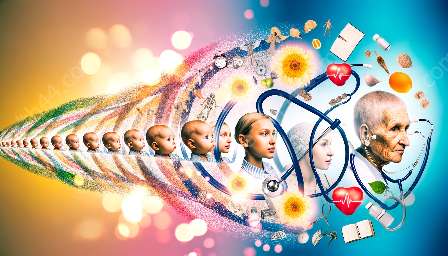Family dynamics and parenting play an essential role in shaping individuals' development, influencing their physical and mental well-being and educational experiences. This topic explores the complex interplay between parenting, family dynamics, and lifespan development, shedding light on the impact on health education and medical training.
Role of Caregivers in Lifespan Development
Caregivers, including parents and other family members, serve as the primary influencers in an individual's life from infancy through adolescence and into adulthood. The quality of caregiving has a profound impact on a child's emotional, cognitive, and social development. Positive and nurturing caregiving experiences can foster resilience, self-esteem, and healthy interpersonal relationships, while neglectful or abusive caregiving can have long-lasting detrimental effects on a child's development.
Relationships and Psychological Development within Families
The family unit serves as the foundational context for the development of an individual's social and psychological well-being. Interactions within the family environment, including parenting styles and communication patterns, significantly shape a person's understanding of relationships, conflict resolution, and emotional regulation. These experiences lay the groundwork for an individual's future interactions with peers, romantic partners, and colleagues, impacting their overall well-being.
Parenting and Educational Outcomes
The parenting style adopted within a family can influence a child's educational experiences and outcomes. Authoritative parenting, characterized by warmth and clear expectations, has been associated with positive academic performance and motivation. In contrast, authoritarian or permissive parenting styles may have detrimental effects on a child's educational engagement and achievement. Understanding these dynamics can inform educators and health professionals in creating supportive environments for children to thrive academically.
Impact on Health Education and Medical Training
Family dynamics and parenting practices can significantly impact an individual's physical and mental health. Adverse childhood experiences, such as trauma or neglect, can increase the risk of developing chronic health conditions and mental health disorders later in life. Recognizing the role of family dynamics in shaping health outcomes is crucial for healthcare professionals, educators, and policymakers to provide targeted interventions and resources for individuals with diverse family backgrounds.
Integrating Family Dynamics and Lifespan Development in Medical Training
Understanding the influence of family dynamics on individuals' health and well-being is vital for medical professionals. Incorporating family-centered care approaches into medical training can enhance healthcare providers' ability to address patients' needs within the context of their family dynamics. By recognizing the various factors that contribute to a patient's health, including parenting styles, social support systems, and familial stressors, healthcare professionals can offer more comprehensive and personalized care.
Conclusion
Family dynamics and parenting are integral elements of an individual's lifespan development, impacting their health, educational experiences, and the way they interact with the healthcare system. By understanding these complex interrelationships, professionals in the fields of health education and medical training can better support individuals across the lifespan, taking into account the diverse family dynamics that shape their well-being.


